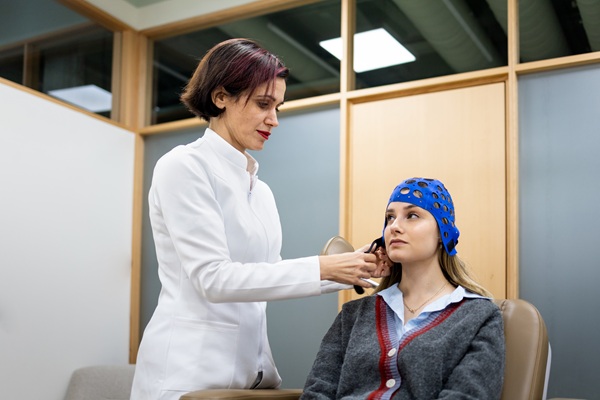Depression TherapyColumbia, SC
Struggling with depression is not as easy or as black and white as some people think. The stereotype that medication will fix everything only promotes many to avoid professional treatment in favor of personal vices and lifestyle choices that only fuel the depression. From consuming alcohol to abusing pain medications or over-eating, people will attempt to self-medicate with choices that further their struggle.
Mechanics of Depression Therapy
With our depression therapy, we can help patients to identify and avoid the negative thoughts, behaviors and actions that fuel their depression. Along with that, we will customize the treatment to the individual patient’s needs. With time and commitment to the treatment, we can help the patient to cope with their depression and lead a healthy life.
Depression therapy can help you work through the issues and begin the road toward a healthier and brighter future.
Since there are multiple forms of depression that can have unique impacts on a patient’s lifestyle, it is important to understand there is no one-size-fits-all treatment method for it. Effective depression treatment involves a combination of prescription medication and therapy with some people not needing much medication at all.
With depression therapy, we can help to address a patient’s symptoms, such as:
- Struggling with levels of sadness, emptiness or hopelessness
- Experiencing increased fatigue, being tired for no reason
- Experiencing anxiety or feelings of agitation
- Sudden fluctuations in one’s weight
- Sudden loss of interest and pleasure in specific activities
- Struggling with feelings of guilt, grief or worthlessness
- Sleeping difficulties
- Sudden outbursts of anger, frustration or irritability
People who tried to deal with these symptoms on their own will find that it begins to get more and more difficult to do so without professional help. Along with that, depression therapy does not have a simple fix or solution that only takes several days. The reality is that depression therapy takes time and does not have only one method.
Constructing a Treatment to Your Needs
Our depression therapy will involve listening to the patient’s concerns and taking factors of their current lifestyle into account. While a general physician may need to conduct an examination of one’s health, we will also evaluate the patient’s mental health, emotions, thoughts and actions that can lead to one’s type of depression.
In order to construct an effective treatment for the patient, there are several areas that we will need to focus on. Here are a few of the areas of a patient’s life that we need to examine when we build a depression therapy treatment.
Identify and Diagnose the Condition
While anyone can search online and visit a large number of web pages that list symptoms of depression, self-diagnosis is not to be as beneficial to treatment. In many cases, mental illnesses and disorder can have similar symptoms or symptoms that are the cause of a separate underlying issue in the patient’s life. During the initial consultation, we will examine the patient and begin to develop a diagnosis.
Since each patient is unique, the amount of time it takes for the diagnosis can vary. Much of this process will also involve the patient’s participation in describing their experiences with the symptoms and emotions.
Take Pre-Existing Conditions and Factors into Account
With the diagnosis, we will take pre-existing conditions and other life factors into account. One’s environment, work, school or relationship can also play a role in their mental health condition. Families with a history of depression can sometimes pass the condition down through generations. If a patient is using alcohol or other substances to cope with the condition, then they may also need to seek treatment for addiction. This will prevent one condition from causing a relapse of the other.
Customize a Treatment Plan
With all this information, we will develop a treatment plan. Unlike treatments for physical health issues, we will continue to work with the patient at regular appointments. During these appointments, we will address factors in the patient’s life that cause the depression, how to avoid these factors and how to focus on more positive factors.
If the patient needs medication, we will prescribe some to help the patient. Medication is not always necessary as a long-term treatment and can change in dosage over time.
Focus on Coping Techniques
This therapy will help patients process and work past the emotions or thoughts that can fuel the depression and make it worse. We are here to provide support along the way and work through this with the patient. By learning the proper coping techniques and reaching a new understanding with our treatment plan, patients will be able to take the path toward a life that is not constantly under the shadow of depression.
Understanding Mood Disorders
It can be difficult to deal with such a high level of emotions when other people seem perfectly normal. The reason for this is that some people struggle with more stress in life and mental health disorders that augment emotions. A mood disorder can make it much more difficult to deal with these emotions. People with this type of disorder may also experience intense emotions that do not seem to match the situation.
With a ride range of mood disorders and unique characteristics for each patient’s symptoms, it is important to seek professional care.
With a variety of possible mental health disorders that classify as a mood disorder, people need to find a professional solution that meets their needs. We can customize the patient’s treatment to a specific lifestyle since there is no one-size-fits-all treatment. People who struggle with a mood disorder will find it difficult to control their emotions during an episode or relax.
It is important to understand one’s mood disorder, the symptoms and the causes of it. Types of mood disorders include:
- Bipolar disorder
- Major depressive disorder
- Depression resulting from mental illness
- Long term depression
- Seasonal affective disorder
- Depression resulting from substance abuse or medication use
Since each patient is unique, the symptoms can range wildly. While people may experience similar levels of mood disorder symptoms, they can have a variety of effects on the individual’s life. The lack of similarities only highlights the need for customized treatment. With many mood disorders, it can be difficult for people to notice the signs.
Identifying the Signs and Symptoms
In many cases, people may not notice a significant change in a person’s behavior when they first begin to struggle with a mood disorder. People may believe the individual is temporarily upset, elated or depressed about something that will fade over time. In reality, the condition can get worse the longer a patient avoids seeking treatment. As the symptoms progress, people may start to notice the signs of a mood disorder.
To help detect a mood disorder, here are some of the symptoms and signs to watch out for:
- Prolonged periods of intense sadness
- Person being unable to stop being sad for no reason
- Fluctuating periods of depression and mania
- Suddenly becoming depressed with changing seasons
- Finding a significant loss of displeasure in most activities
- Sudden outbursts of anger or frustration for no reason
- Depression after substance abuse or during withdrawals
- Fluctuating emotions that can range from happy and elated to depressed and upset
Part of the issue is that the person struggling with a mood disorder will not have the ability to stop the emotions or episode. Due to this, it can be incredibly frustrating when others tell an individual to “just stop being sad.” By seeking treatment, the individual will be able to learn to cope with the negative thoughts and behaviors of a mood disorder.
Treatment Options
The main treatment for many mood disorders is various combinations of talk therapy and medication. While the amount of therapy and medication can vary per person, the overall goal is to help the patient work through the mood disorder. We can help the patient cope with the symptoms and identify negative thoughts or behaviors to avoid prolonging the condition.
A patient who is more secluded, shut off and quiet about their mood disorder will have a more difficult time treating it. People must choose to seek treatment in order to truly benefit from it. We will customize the treatment to the patient’s condition by gathering information about their medical history and current condition. If a patient has a family history of certain mental disorders, then we need to know. We will customize the treatment to avoid any past treatments that were ineffective in helping the patient toward long-term results.
If you or a loved one are struggling with a mood disorder, then give us a call and schedule an appointment today. A mood disorder can occur on its own or in tandem with another condition that only heightens the symptoms and risk. We can help you take the first step toward recovery and a brighter future.
Contact Us
Future Psych Solutions is located at
1911 Gadsden St #101
Columbia, SC
29201.





